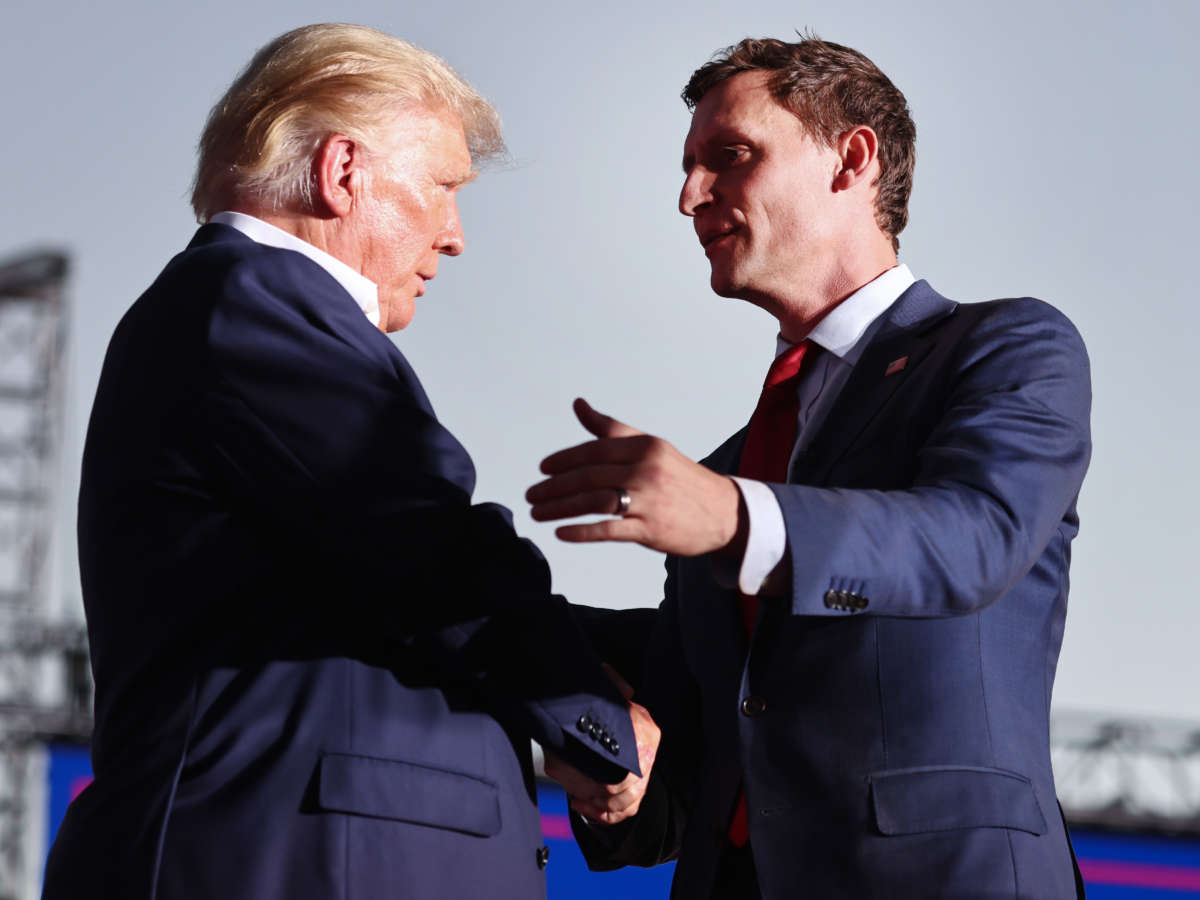The vast majority of Republicans running for Congress or in major statewide races believe — at least to some extent — former President Donald Trump’s lie that the 2020 election was stolen from him, representing an alarming “new normal” for the party, a New York Times report finds.
Out of more than 550 candidates analyzed, more than 370 GOP candidates for Congress, governor, secretary of state or state attorney general doubt or outright deny the results of the 2020 election, according to the report. This represents about two-thirds of these Republican candidates and about 70 percent of those running for Congress specifically — people who could soon be put in positions of great influence over the way elections are conducted and results are tallied.
According to The New York Times, voters in every state will see at least one candidate who has questioned the results of the 2020 election on the ballot. Hundreds of these candidates are projected to win their races, the report finds.
That this sentiment is so widespread across the party — despite and perhaps because of the fact that there is a mountain of evidence disproving Trump’s election lies — is an alarming indication that the baseline of truth has shifted among the GOP. It could also shape elections to come, as the Republican Party has waged a nationwide effort to destabilize elections and make it easier for their candidates to win or outright steal them.
Such candidates “are the new normal of the Republican Party,” the New York Times wrote. “These candidates represent a sentiment that is spreading in the Republican Party, rupturing a bedrock principle of democracy: that voters decide elections and candidates accept results.”
This is a more dire outlook on the proportion of election deniers in the GOP than has previously been found. Similar analyses from The Washington Post and FiveThirtyEight have also found that there is a large proportion of GOP candidates who question or deny the election results. But those analyses didn’t find as large a number of election deniers, nor did they appear to have done as comprehensive an analysis of candidates’ speeches, social media posts, fundraising emails, interviews, and other campaign materials to find evidence of their denial.
The number of GOP candidates who have questioned the 2020 election results has grown over time, the publication found. Of the candidates who were public figures on or before January 6, 2021, when the election results were certified by Congress and Trump militants broke into the Capitol, only 74 publicly agreed with Trump’s Big Lie. Over the past couple of years, however, more and more candidates have embraced the conspiracy.
This indicates that many of these candidates likely view fealty to Trump as a winning strategy — or perhaps that they fear being isolated by the party if they choose to stand in line with reality.
Republicans have coordinated effective campaigns to shun those who denounce Trump; they successfully primaried Rep. Liz Cheney (R-Wyoming), one of Trump’s loudest Republican detractors in Congress, for instance, and are seeking to replace her with Trump-backed, anti-environmentalist candidate Harriet Hageman this fall.


